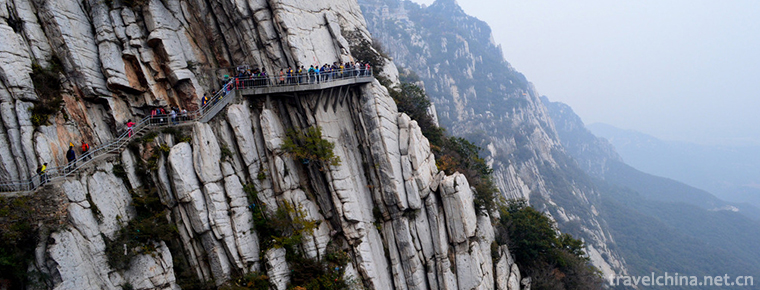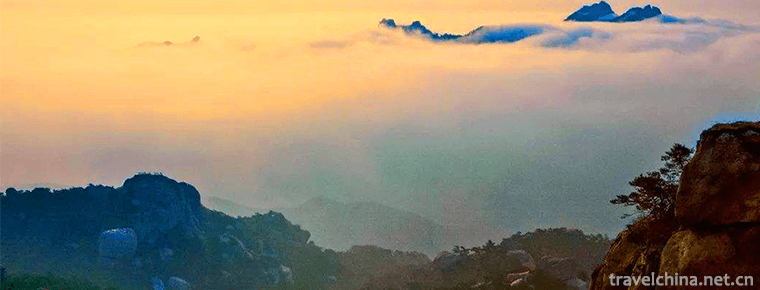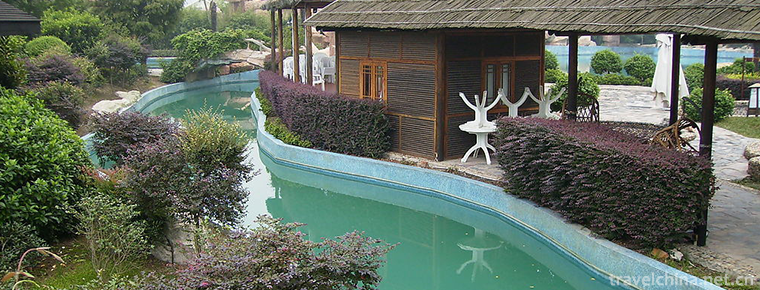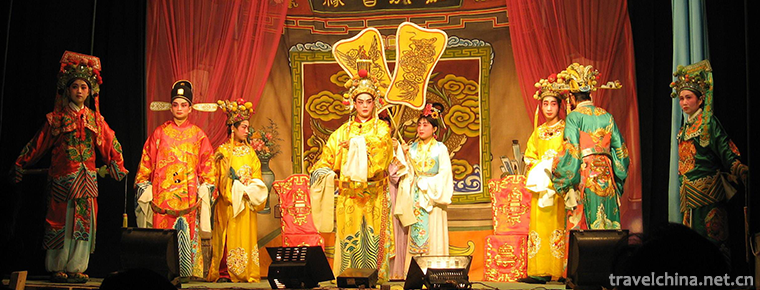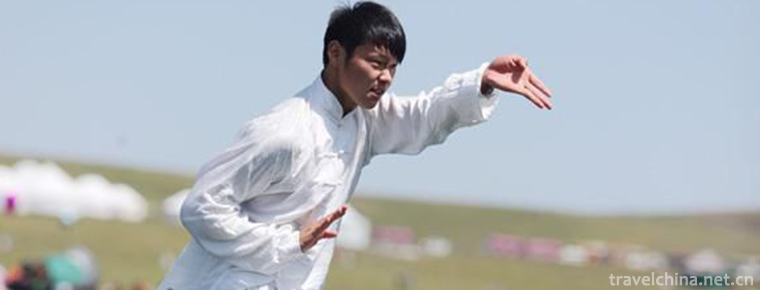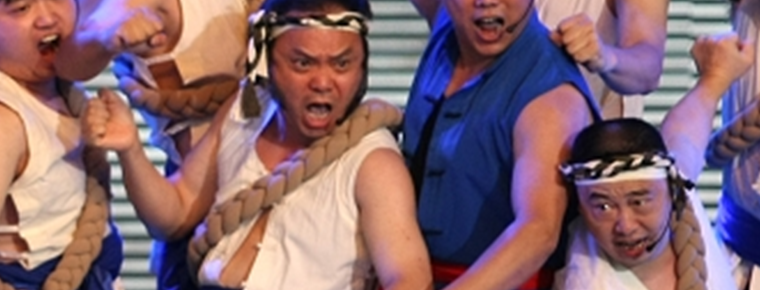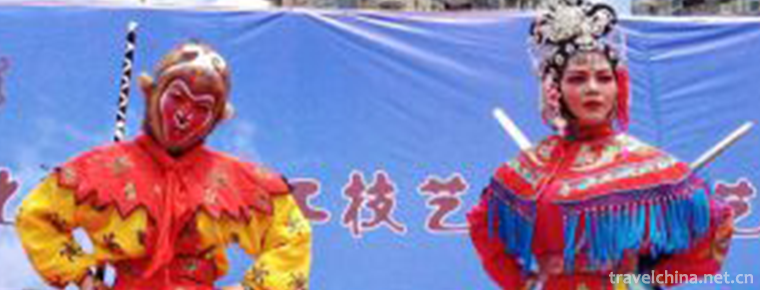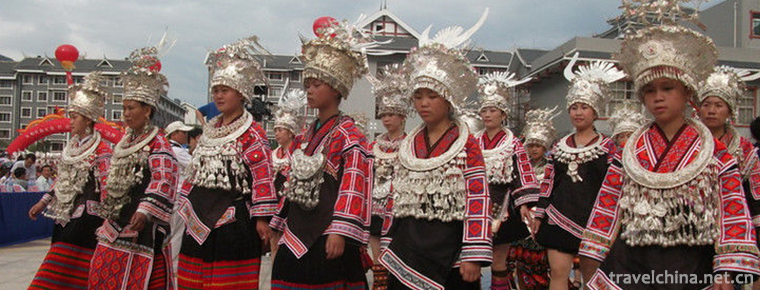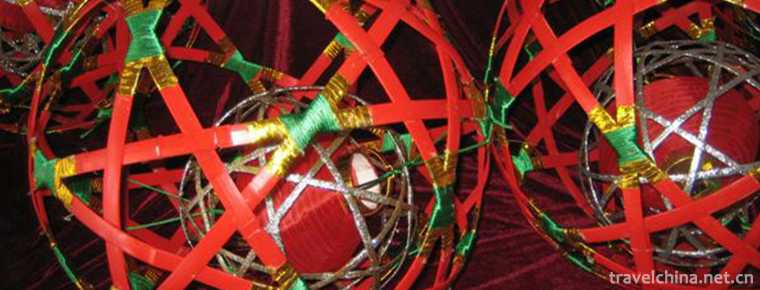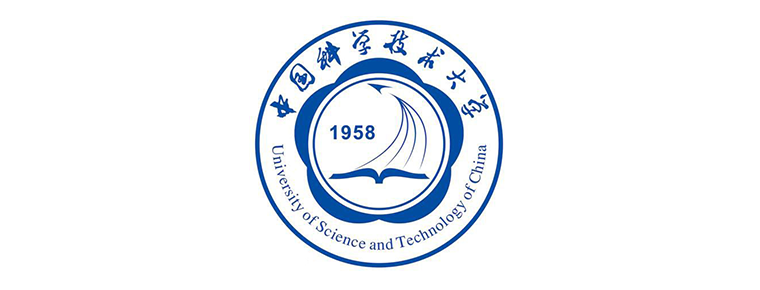Valorafo Festival of the Qiang Nationality
Valorafo Festival of the Qiang Nationality
The "Valorafo Festival of the Qiang Nationality", known in Chinese as the "Song Fairy Festival" or "Leading Song Festival" and "Song Invitation Festival", is a traditional custom held by Qiang women to worship Sister Salang, the goddess of singing and dancing in heaven. Because this activity is mainly hosted and operated by women, the local people also call it "Women's Day".
On May 20, 2006, the Qiang Valorafo Festival declared by Aba Tibetan and Qiang Autonomous Prefecture of Sichuan Province was listed in the first batch of national intangible cultural heritage list with the approval of the State Council
cultural background
The Qiang people, who call themselves the Erma people, are one of the oldest nationalities in China. They were recorded in oracle bone inscriptions as early as. Living in the mountains is called the ethnic group on the clouds. It mainly lives in Maoxian, Wenchuan, Lixian, Songpan, Beichuan Qiang Autonomous County and Pingwu County in Aba Tibetan and Qiang Autonomous Prefecture of Sichuan Province.
Situated in Xihuzhai and Hexi villages of Qugu Township in the north of Maoxian County, this custom has been spreading for thousands of years. In order to worship Sister Salang, the goddess of singing and dancing in heaven, every year on the fifth day of May in the lunar calendar, she boards the Goddess Liangzi and holds the "Waluozu" activity, commonly known as the "Song Fairy Festival" or "Leading Song Festival" in Chinese. Because it is a custom activity completely attended by Qiang women, it is also called "Qiang Women's Day".
Origin of Festivals
Valorafu is an ancient traditional festival of the Qiang nationality, which is mainly hosted and organized by women. It originated from the religious culture of the polytheism worship of the ancient Qiang nationality. At the end of Qin Dynasty and the beginning of Han Dynasty, the Qiang people migrated from Hehuang to settle in the middle and upper reaches of Minjiang River. In the long-term development of nomadic and farming culture, they gradually formed the "Valoazu" with unique folk connotation, which today takes the prayer and singing goddess Sister Salang as the main line.
Major activities
During the festival, all women in Benzhai, regardless of age and age, wear bright local ethnic costumes and wear silver jewelry to attend, the atmosphere is very warm.
The main activities of the Walrus Football Association are as follows:
1. The activity procedure of the night before "Walo Foot": women gathered around the fire hall to make sun steamed buns, moon steamed buns and mountain steamed buns (accompanied by uncle); uncle's opening altar, congratulations; and making offerings.
2. The activity procedure of "ValorFoot" day: go to the goddess Liangzi to worship (led by uncle); hold the ritual of sacrificing and killing goats; uncle sings sutras, rewards gods and prays for gods; lead singing and dancing; the prestigious old mother in the village tells the story of Sister Sharon, the goddess of singing and dancing, so that people can make clear the traditions of love, fertility and housework; men cook and serve beside; transmit songs and dances.
On the third day of May of the lunar calendar, the head of the Congress organized several clean-up women, holding incense, wax, wine, cedar, steamed bun, knife head and other tributes, to march to the stone pagoda of the goddess Liangzi to worship Sister Salang, the goddess were invited to sing and dancing, which was called the "lead song". Returning to the village and informing each household of the information is called "receiving songs". On May 4th, women busily prepare delicious food for the next day, while unmarried women prepare hand-embroidered gifts for their lover. In the early morning of the fifth day, in the morning sunrise, the dusty Chongyang wine was opened to bless the whole village with two flourishing livestock and five bumper grains. Salang is the main content of the activity. Salang is led by the elderly women, and then one by one, he teaches singing and dancing to the next generation. Men were accompanied by singing and dancing, and served with bacon, wine, steamed buns and other foods. Intermittent activities, married women to young women to teach sexual knowledge, housekeeping and other knowledge. Or a lover walks in a whisper; or a woman laughs at each other. Tired, women sit in groups in twos and threes, tasting delicious food, drinking and drinking, laughing about life. The whole festival lasts for three days. During the three-day festival, the women showed their best, dancing Salang without feeling. Farming and housework were run by the male Qiang people.
According to the traditional rules of "Valorafo", if there were women aged 13 to 50 who died in Benzhai, there would be no "Valorafo" in that year.
The involvement of uncles in the activities of the Walrus Football Association from beginning to end reflects the characteristics of the Qiang women's group activities and the great power of their mothers and uncles in ancient times. It has a strong vestige of primitive matrilineal worship, and has an important research value in understanding the cultural connotation of the ancient Qiang nationality, goddess worship and female customs. The way of inheritance of Valorafu has great research value and positive effect on the ancient folk culture and art of the Qiang nationality, especially on the development and evolution of the Qiang folk dance Salang.
Inheritance value
From ancient times to today, the Qiang nationality has left a deep cultural accumulation in thousands of years, which is very rare in the history of Chinese and world nationalities. Therefore, it becomes a living specimen for the study of history and culture, and has irreplaceable important value in the history of world national evolution and cultural evolution.
From the historical process of its formation and development, the traditional festival of Waluozu is closely related to the history, traditional culture and ancient matriarchal worship customs of the Qiang nationality. As one of the oldest nationalities in China, the Qiang nationality has a long history and splendid culture. In the course of thousands of years of national history, many ancient folklores and their national history are only scattered in ancient Chinese classics due to the absence of native language. The Walrus Football Association has been inherited by the people and retained the unique folk culture inherent in the ancient Qiang Dynasty.
Valuerzu is a comprehensive folk festival with women as the main part. It integrates singing and dancing, diet, religion, custom, costume and architecture. It can reflect the general outline of Qiang culture more completely. It occupies an important position in Qiang folk culture and has high research and ornamental value. In the historical development and inheritance so far, there is no exception in the Qiang nationality inhabited areas, which is really rare. Through the study of the Valorafo festival of the Qiang nationality, we can have a deep understanding of the religious and cultural connotation of the ancient Qiang nationality, which is of great value to the study of the Qiang goddess worship customs, folk songs, primitive dances, education and so on.
The State attaches great importance to the protection of intangible cultural heritage. On May 20, 2006, the folklore was approved by the State Council and listed in the first batch of national intangible cultural heritage lists.

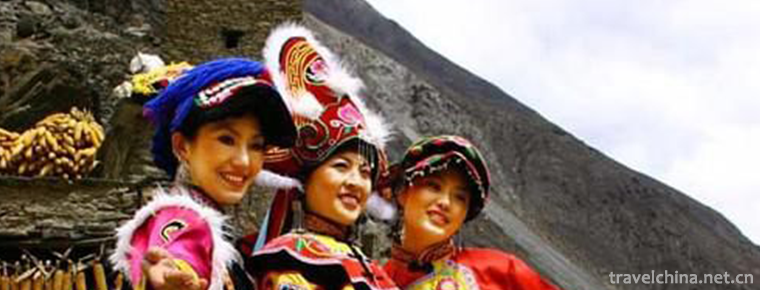
-
Mount Song
Songshan, known as the "foreign side" in ancient times, Xia and Shang Dynasties as "lofty" and "Chongshan", Western Zhou Dynasty as "Yue Shan", Songshan as the .
Views: 186 Time 2018-10-30 -
Wulian Mountain Scenic Area
Wulian Mountain Scenic Area covers a total area of 68 square kilometers and is a national AAAA-level tourist area. It is composed of Wulian Mountain and Jiuxian Mountain.
Views: 152 Time 2018-12-22 -
Golden Peacock Hot Spring Resort
Anhui Jinpeacock Hot Spring Resort is a commercial resort hotel which integrates vacation, fitness, leisure, entertainment, catering and accommodation. It covers an area .
Views: 128 Time 2019-01-26 -
baizi opera
Baizi Opera, a local traditional drama in Haifeng County, Shanwei City, Guangdong Province, is one of the national intangible cultural heritage. Baizi opera is a local opera sung in Haifeng and Lufen.
Views: 169 Time 2019-04-03 -
Jia Jia Quan
Amaranth, also known as Amaranth, Amaranth hammer, one of the traditional Chinese boxing. It was founded by Mr. Junai Zhou (1724-1783) in Heshui County, Zhengzhou, in the reign of Qianlong in the Qing.
Views: 224 Time 2019-04-16 -
Song of Sichuan river
Chuanjiang chant is a kind of traditional folk singing form that the shipworkers in Chuanjiang valley of Sichuan and Chongqing area lead the singing by the trumpeters for unified movement and rhythm.
Views: 160 Time 2019-04-19 -
Suzhou opera
On June 7, 2008, Hangzhou and Shaoxing City of Zhejiang Province jointly declared "Spring Spring Spring Spring Packing" which was approved by the State Council to be included in the second b.
Views: 389 Time 2019-06-18 -
Yangasha
Yangasha, an epic originating in Jianhe, Guizhou Province, is eulogized for Miao compatriots from generation to generation. It is a sad and elegant love story about a passionate Miao girl. It is the G.
Views: 178 Time 2019-07-11 -
Yuhang Rolling Lamp
Yuhang Rolling Lamp is a kind of Han folk dance which combines athletics, martial arts and dance. It is made of bamboo pieces of large sphere as the main props, in the center of the sphere of bamboo k.
Views: 148 Time 2019-07-14 -
University Of Science And Technology Of China
University of Science & Technology China (University of Science and Technology of China) China University of science and technology Located Anhui Province Hefei City By Chinese Academy of Sciences.
Views: 121 Time 2019-11-23 -
Geographical environment of Leshan
Leshan City is located in the central part of Sichuan Province and the southwest of Sichuan Basin. Its geographical coordinates are 102 ° 50 ′ - 104 ° 30 ′ E and 28 ° 25 ′ - 30 ° 20 ′ n. It is 214.4 km long from north to South and 164.0 km wide from east to.
Views: 187 Time 2020-12-17 -
Meishan peoples life
In 2019, the per capita disposable income of urban residents is 36743 yuan, an increase of 9.0%. The per capita consumption expenditure of urban residents was 23554 yuan, an increase of 12.0%; the per capita disposable income of rural residents was 18177.
Views: 340 Time 2020-12-18
